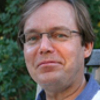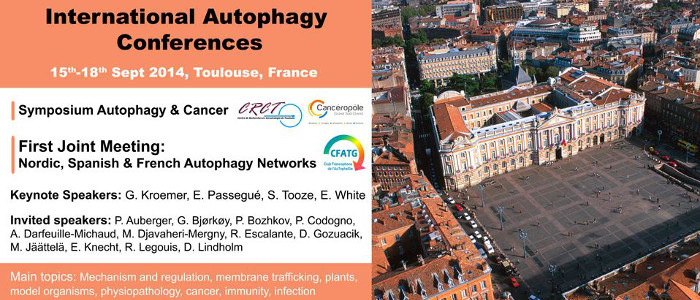Autophagy is a cellular process aimed to remove or recycle intracellular components. It is an ubiquitous and constitutive pathway of cellular catabolism highly conserved in eukaryotes. It was identified as a result of the discovery of the lysosome by Christian de Duve in the early 60s (Nobel Prize in Medicine and Physiology in 1974 for the discovery of lysosomes and peroxisomes). To date, three major pathways have been identified: (i) the selective autophagy of cytosolic and membrane proteins, (ii) the autophagy of cytoplasmic portions, and (iii) the selective autophagy of cellular organelles or invasive microorganisms. Autophagy has emerged in the recent years as a fundamental process of cellular homeostasis and its dysregulation is associated with many diseases including neurodegenerative disorders, cancer, type II diabetes, obesity and infectious diseases. Thus, autophagy has become a major issue of basic research in biology, physiology and immunology and for the discovery of new therapeutic approaches.
It is therefore important to create a scientific network to promote scientific interactions to enhance knowledge and development of new therapeutic strategies on this topic. A pioneer example is the Francophone Club of AuTophaGie (CFATG) created by scientists of the field from different research organizations. Research promoted by CFATG may thus obtain greater visibility and the achievements generated by the synergy fostered by the community will help strengthen the competitiveness at the international level.

Contact: Dan Lindholm
At: Le Club Francophone de l’AuTophaGie (CFATG)
Place: Toulouse, France

